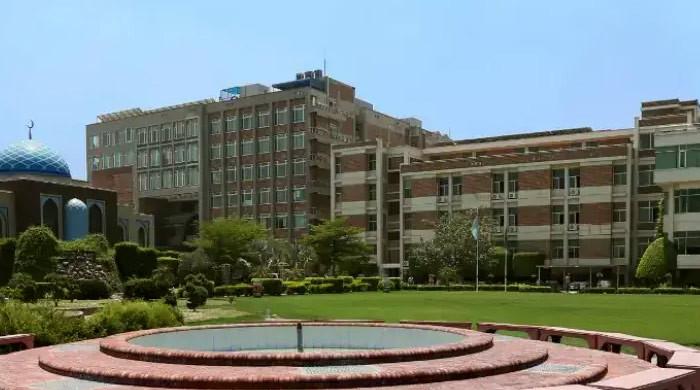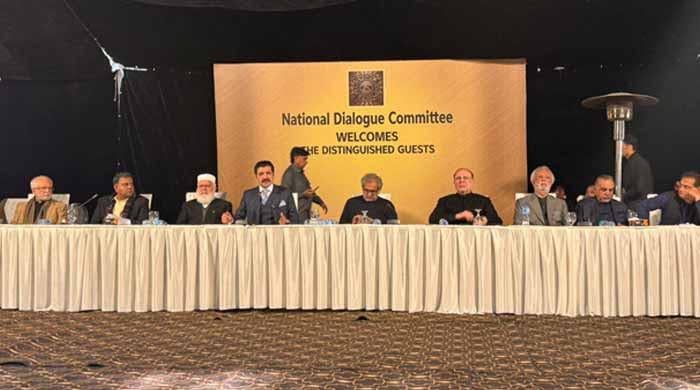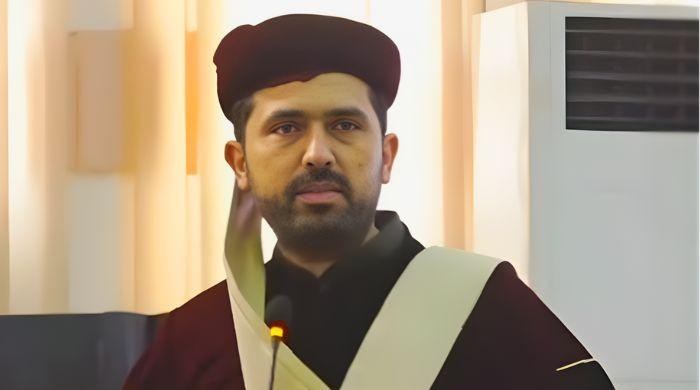India targeted PM Imran Khan's number through Israeli spyware
Pakistani officials, Rahul Gandhi, Indian supreme court judge among tapped targets
July 19, 2021

- Pakistani officials, Rahul Gandhi, Indian supreme court judge among tapped targets.
- “Targeted surveillance [...] is illegal and deplorable," says Gandhi.
- Activists, journalists, politicians across the world have been spied on using cellphone malware developed NSO.
India targeted a phone which was earlier in Prime Minister Imran Khan's use through an Israeli firm's malware, a global investigation had revealed, igniting fears of widespread privacy and rights abuses.
As reported by an independent Israeli publication Haaretz, several Pakistani officials, Kashmiri freedom fighters, Indian Congress leader Rahul Gandhi, and even an Indian supreme court judge were targeted, the publication said.
Sources informed Geo News that India tried to tap the Federal Cabinet members' calls and messages through the spyware, prompting Pakistan to develop new software for its federal ministers.
Following the development, a high-level meeting of the civil and military leadership was called which will decide a future course of action against India's spying attempt.
Meanwhile, Gandhi in response to the development said: “Targeted surveillance of the type you describe, whether in regard to me, other leaders of the opposition, or indeed any law-abiding citizen of India, is illegal and deplorable."
“If your information is correct, the scale and nature of surveillance you describe go beyond an attack on the privacy of individuals. It is an attack on the democratic foundations of our country. It must be thoroughly investigated, and those responsible be identified and punished.”
The Congress leader changes his cellphone after every few months in a bid to avoid being hacked.
Per the publication, New Delhi did not confirm nor deny whether it was a client of the Israeli firm NSO or not, however, its laws do not bind the government to disclose the use of said technology.
India’s Ministry of Electronics and Information Technology, responding to questions from The Washington Post, said the claim that specific people were targeted “had no concrete basis or truth associated with it whatsoever.”
“Any interception, monitoring, or decryption of any information through any computer resource is done as per the due process of law," it added.
It is pertinent to mention here that according to Reuters, India is Israel’s biggest arms consumer, which buys around $1 billion worth of weapons every year.
Private Israeli malware used to spy on journalists, activists
Activists, journalists and politicians around the world have been spied on using cellphone malware developed by a private Israeli firm, reports said Sunday, igniting fears of widespread privacy and rights abuses.
The use of the software, called Pegasus and developed by Israel's NSO Group, was reported on by The Washington Post, the Guardian, Le Monde and other news outlets who collaborated on an investigation into a data leak.
The leak was of a list of up to 50,000 phone numbers believed to have been identified as people of interest by clients of NSO since 2016, the reports said.
Not all of those numbers were subsequently hacked, and the news outlets with access to the leak said more details about those who were compromised would be released in the coming days.
Among the numbers on the list are those of journalists for media organisations around the world including Agence France-Presse, The Wall Street Journal, CNN, The New York Times, Al Jazeera, France 24, Radio Free Europe, Mediapart, El PaÃs, the Associated Press, Le Monde, Bloomberg, the Economist, Reuters and Voice of America, the Guardian said.
The use of the software to hack the phones of Al Jazeera reporters and a Moroccan journalist has been reported previously by Citizen Lab, a research centre at the University of Toronto, and Amnesty International.
Among the numbers found on the list were two belonging to women close to Saudi-born journalist Jamal Khashoggi, who was murdered by a Saudi hit squad in 2018.
The list also included the number of a Mexican freelance journalist who was later murdered at a carwash. His phone was never found and it was not clear if it had been hacked.
The Washington Post said numbers on the list also belonged to heads of state and prime ministers, members of Arab royal families, diplomats and politicians, as well as activists and business executives.
The list did not identify which clients had entered the numbers on it. But the reports said many were clustered in 10 countries — Azerbaijan, Bahrain, Hungary, India, Kazakhstan, Mexico, Morocco, Rwanda, Saudi Arabia and the United Arab Emirates.
The Guardian wrote that the investigation suggests "widespread and continuing abuse" of Pegasus, which NSO says is intended for use against criminals and terrorists.
Amnesty International and Forbidden Stories, a Paris-based media non-profit organisation, initially had access to the leak, which they then shared with media organisations.
NSO, a leader in the growing and largely unregulated private spyware industry, has previously pledged to police for abuses of its software.
It called the allegations exaggerated and baseless, according to The Washington Post, and would not confirm its clients' identities.
Citizen Lab reported in December that dozens of journalists at Qatar's Al Jazeera network had their mobile communications intercepted by sophisticated electronic surveillance.
Amnesty International reported in June of last year that Moroccan authorities used NSO's Pegasus software to insert spyware onto the cellphone of Omar Radi, a journalist convicted over a social media post.









